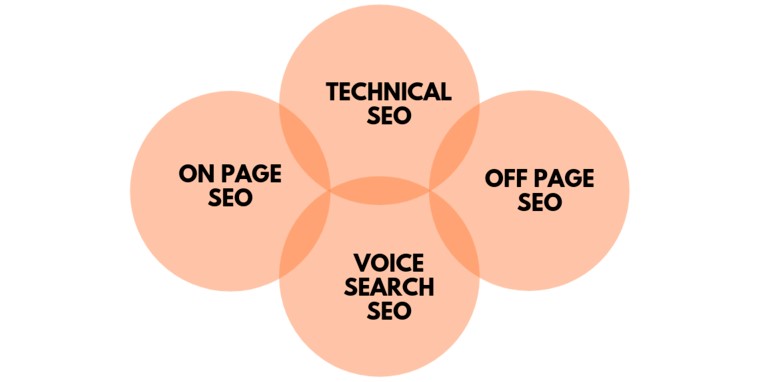DIY SEO Tips for Plumbers: Boost Your Online Presence
In today’s digital age, having a strong online presence is crucial for businesses of all sizes and industries. For plumbers in Pennsylvania, it’s no different. With more and more people turning to the internet to find local services, optimizing your online presence through DIY search engine optimization (SEO) is essential to attract potential customers and grow your plumbing business. In this article, we’ll explore DIY SEO tips tailored specifically for plumbers in Pennsylvania, helping you enhance your online visibility and reach a broader audience.
Keyword Research: The Foundation of SEO Optimization
Before diving into your DIY SEO optimization, it’s essential to start with comprehensive keyword research. Keywords are the terms and phrases that potential customers type into search engines when looking for plumbing services in Pennsylvania. To ensure your website ranks well in search results, identify relevant keywords that reflect your plumbing services and location.
Begin by brainstorming potential keywords that are specific to your plumbing business. These might include terms like “Pennsylvania plumbing services,” “emergency plumbers in Pennsylvania,” or “water heater repair in Pennsylvania.” Use online tools like Google Keyword Planner, Ubersuggest, or Ahrefs to expand your keyword list and discover long-tail keywords that can be easier to rank for.
Competitor analysis is another valuable aspect of keyword research. Look at your competitors’ websites and see what keywords they are targeting. You can gain insights into effective keywords and phrases in your niche by doing so.
On-Page SEO Optimization: Crafting Quality Content
Once you’ve identified your target keywords, the next step for your plumbing website optimization strategy is applying them. Start by creating high-quality, informative content that addresses the needs and questions of your potential customers. Content is king in SEO, and Google rewards websites that offer valuable information to users.
Ensure that your target keywords are strategically placed throughout your website content. Use header tags (H1, H2, H3, etc.) to structure your content and include your keywords naturally. However, avoid keyword stuffing, as this can negatively impact your website’s ranking.
Image optimization is often overlooked but plays a significant role in SEO. Compress and properly label your images with descriptive alt text that includes relevant keywords. This not only improves your website’s accessibility but also boosts your chances of appearing in image search results.
Internal linking is another important on-page SEO technique. Link relevant pages and blog posts within your website to provide users with a seamless navigation experience and help search engines understand the structure of your site.
Don’t forget to optimize your meta tags and meta descriptions for each page on your website. These short snippets provide a brief preview of your content in search results and can greatly influence click-through rates.
Mobile optimization is critical, as many users search for services on their smartphones. Ensure your website is responsive and loads quickly on mobile devices. Google takes mobile-friendliness into account when ranking websites.
Local SEO: Dominating the Local Market
For plumbers in Pennsylvania, digital marketing is a game-changer. Using SEO is all about getting your business to appear in local search results when potential customers in your area are looking for plumbing services. Here are some key strategies for local SEO optimization:
Google My Business (GMB)
Claim and optimize your Google My Business listing. Provide accurate NAP (Name, Address, Phone number) information, business hours, and high-quality photos. Encourage customers to leave reviews.
NAP Consistency
Ensure that your business’s NAP information is consistent across all online directories, including your website, social media profiles, and local business listings.
Online Reviews
Encourage satisfied customers to leave reviews on your GMB listing. Respond to reviews, both positive and negative, to show your commitment to customer satisfaction.
Local Directory Listings
List your plumbing business on local directories like Yelp, Yellow Pages, and Angie’s List. Ensure your NAP information is accurate.
Location-Specific Landing Pages
Create landing pages on your website for different service areas within Pennsylvania. Optimize these pages with location-specific keywords,
Off-Page SEO: Building Authority and Backlinks
Off-page SEO focuses on improving your website’s authority and reputation across the internet. One key factor in off-page SEO is building high-quality backlinks from reputable websites in your industry. Here are some strategies to consider:
Guest Posting
Contribute guest posts to industry-related blogs and websites. Include links back to your website within your author bio or content, when relevant.
Social Media Engagement
Actively engage with your audience on social media platforms. Share valuable content, respond to comments, and encourage social sharing.
Online Community Participation
Join online forums and communities related to plumbing or home improvement. Provide helpful answers to questions and include a link to your website in your forum signature, if allowed.
Online Mentions
Monitor online mentions of your business and respond promptly. Encourage satisfied customers to mention your business online.
Content Marketing: Inform, Educate, and Engage
Content marketing is a powerful tool, as many SEO professionals might tell you. Create valuable content that educates and engages your audience. Consider the following content ideas:
Blogging
Publish blog posts about common plumbing issues, maintenance tips, and industry news. Use your target keywords naturally within your blog content.
Video Marketing
Create informative videos showcasing plumbing services, tutorials, or customer testimonials. Share these videos on platforms like YouTube.
Infographics
Design visually appealing infographics that explain complex plumbing concepts or offer useful tips. Share them on your website and social media.
User-Generated Content
Encourage customers to share their experiences with your plumbing services on your website or social media. User-generated content can build trust.
Email Marketing
Build an email list of interested customers and send regular updates, tips, and promotions. Email marketing can help retain and engage your audience.
Technical SEO: The Backbone of SEO Optimization
Technical SEO focuses on the technical aspects of your website that impact its visibility in search engines. Here are some technical SEO considerations:
Website Structure
Ensure your website has a clear and organized structure. Use an XML sitemap and submit it to search engines for indexing.
URL Structure
Create clean and descriptive URLs for your website pages. Avoid lengthy or cryptic URLs.
Canonicalization
Implement canonical tags to specify the preferred version of duplicate content on your website.
Schema Markup
Use schema markup to provide structured data about your plumbing services to search engines. This can enhance your search results with rich snippets.
Crawl Errors
Regularly monitor and fix crawl errors using tools like Google Search Console. Broken links and pages can harm your SEO efforts.
Tracking and Analytics: Measuring DIY SEO Success
Implementing SEO optimization is not enough; you also need to measure its success and make adjustments as needed. Here’s how:
Google Analytics
Set up Google Analytics to track your website’s traffic, user behavior, and conversion rates. Monitor which keywords drive the most traffic and which pages perform best.
Goals and Conversions
Define specific goals, such as form submissions or phone calls, and track them in Google Analytics. This helps you measure the ROI of your SEO efforts.
Regular Review
Periodically review your SEO strategy based on data. Identify areas for improvement and make necessary changes to your website and content.
DIY SEO Tools and Resources
To succeed in SEO optimization, it’s essential to have the right tools and resources at your disposal. Here’s a list of essential tools and recommended resources:
SEO Tools
– Google Keyword Planner
– Ubersuggest
– Ahrefs
– Google Search Console
– SEMrush
Recommended Blogs and Forums
– Moz Blog
– Search Engine Land
– Webmaster World
– Local Search Forum
SEO Checklist
– Create an SEO checklist to ensure you cover all essential aspects of SEO optimization regularly.
In conclusion, SEO optimization is a powerful strategy for plumbers in Pennsylvania to boost their online presence and attract more local customers. By conducting thorough keyword research, optimizing your website, focusing on local SEO, and engaging in content marketing and off-page SEO efforts, you can take control of your online visibility.
Remember that SEO is an ongoing process that requires dedication and consistency. Stay updated with industry trends and algorithm changes to adapt your strategy accordingly. By following these DIY SEO tips, you can enhance your plumbing website’s visibility, drive more organic traffic, and ultimately grow your business.
For expert assistance in Pennsylvania SEO and to learn more about optimizing your plumbing business’s online presence, contact SEO Plumber Pennsylvania at (215) 770-6442. Our team of SEO experts is here to help you achieve your online marketing goals and increase your customer base. Don’t miss out on the opportunity to dominate the online market for plumbing services in Pennsylvania. Contact us today!
FAQs:
What is SEO, and why is it important for plumbers in Pennsylvania?
SEO stands for Search Engine Optimization, and it’s the process of optimizing your website to rank higher in search engine results pages (SERPs). For plumbers in Pennsylvania, SEO is essential because it helps improve online visibility. When your website ranks well in search results, more potential customers can find your services, leading to increased website traffic and business growth.
Can I do DIY SEO optimization without technical knowledge?
Yes, you can certainly start with DIY SEO optimization even if you don’t have extensive technical knowledge. Many aspects of SEO, such as keyword research, content creation, and local SEO, can be learned and implemented by following online guides and using user-friendly tools. However, for more technical aspects like website structure and schema markup, you may benefit from consulting with an SEO expert.
How long does it take to see results from DIY SEO efforts?
SEO is a long-term strategy, and results may not be immediate. It typically takes several months to start seeing noticeable improvements in your website’s rankings and organic traffic. The timeline can vary based on competition, the quality of your SEO efforts, and the specific keywords you are targeting. Be patient and continue to refine your strategy for sustained success.
Are there any risks involved in DIY SEO that I should be aware of?
While DIY SEO can be effective, there are some risks involved if not done correctly. Keyword stuffing, poor-quality backlinks, and neglecting technical SEO issues can harm your website’s rankings and reputation. It’s important to stay updated with SEO best practices and avoid black-hat tactics. If in doubt, consider consulting with an SEO professional for guidance.
How can I measure the success of my DIY SEO efforts?
Measuring the success of your DIY SEO efforts involves tracking various metrics. You can use tools like Google Analytics to monitor website traffic, user behavior, and conversion rates. Track keyword rankings to see if your target keywords are moving up in search results. Additionally, set specific goals for your website, such as form submissions or phone calls, and measure their conversion rates. Regularly review your data and adjust your SEO strategy based on the results to ensure ongoing improvement.
More to Read
-
 SEO Sinks and Rises: Elevating Your Plumbing Business Online
SEO Sinks and Rises: Elevating Your Plumbing Business Online -
 Turning Clicks into Customers: Plumbing the Depths of Digital Marketing
Turning Clicks into Customers: Plumbing the Depths of Digital Marketing -
 Web Wrenching: A Guide to SEO Mastery for Plumbers
Web Wrenching: A Guide to SEO Mastery for Plumbers -
 Beyond the Plunger: SEO and Digital Marketing for Modern Plumbers
Beyond the Plunger: SEO and Digital Marketing for Modern Plumbers -
 Pipe Perfection: Crafting a SEO Strategy for Plumbers
Pipe Perfection: Crafting a SEO Strategy for Plumbers -
 Digital Drain Surge: SEO Tactics to Skyrocket Your Plumbing Business
Digital Drain Surge: SEO Tactics to Skyrocket Your Plumbing Business -
 Tightening the SEO Faucet: Strategies for Plumbing Success Online
Tightening the SEO Faucet: Strategies for Plumbing Success Online -
 The Digital Toolbox for Plumbers: SEO and Marketing Strategies
The Digital Toolbox for Plumbers: SEO and Marketing Strategies -
 SEO Plunge: Transforming Your Plumbing Business Online
SEO Plunge: Transforming Your Plumbing Business Online -
 Pipelines to Profit: Navigating Digital Marketing for Plumbers
Pipelines to Profit: Navigating Digital Marketing for Plumbers

